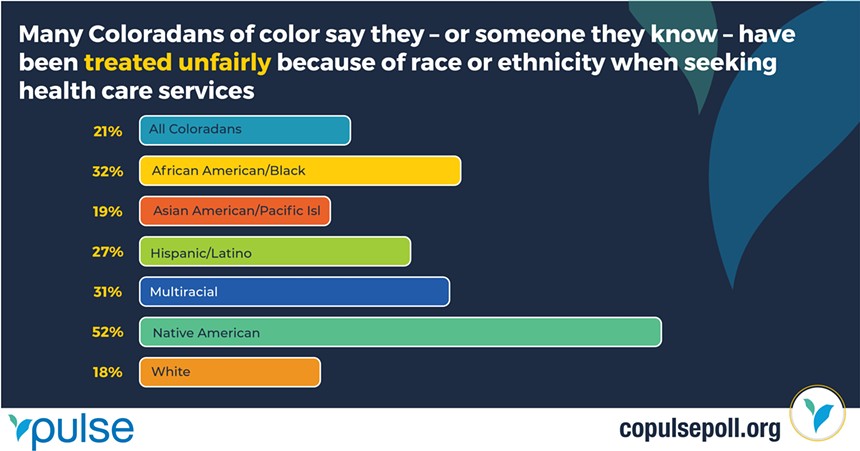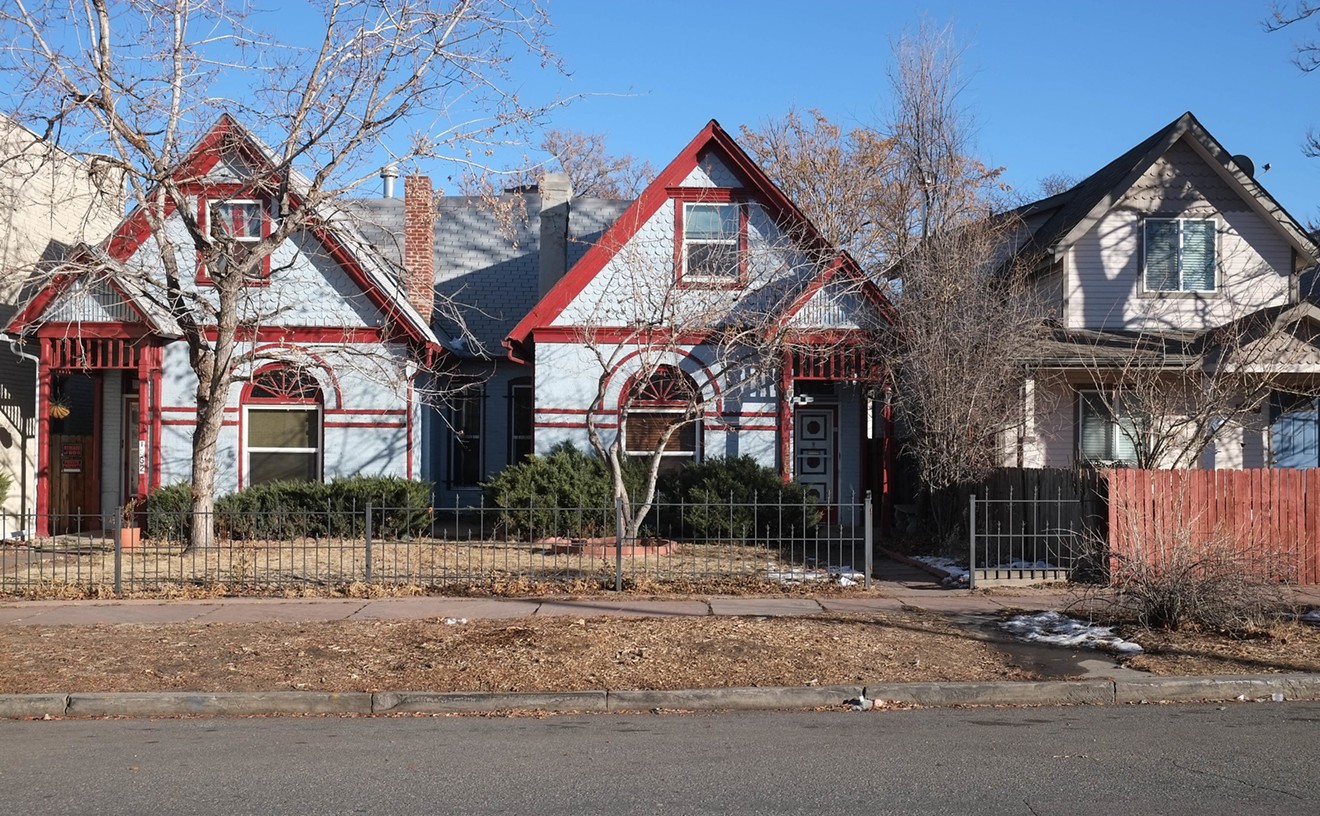At 10 a.m. today, June 22, the Colorado Health Foundation will hold online briefings regarding its annual Pulse Poll — a survey of Coloradans to determine how they're feeling about a range of subjects related to health in general.
There's a lot to talk about. As noted by Jace Woodrum, the foundation's senior officer of public-opinion insights and a driving force behind the project, the poll found that Colorado residents are much more worried about the cost of living than they were just a year earlier.
"We created the poll in 2020," Woodrum notes. "That year, we saw a tremendous amount of concern around COVID-19 — not just the health impacts, but financial and economic impacts. That waned in 2021, when people were starting to express more confidence. But this year, we're seeing a feeling of people being overwhelmed by the increased cost of living, and especially the cost of housing. They have a rosier picture of the economy itself, but they have their own personal financial insecurity that showed up in a lot of ways."
For instance, more than 40 percent of Coloradans said they were worse off financially than they were the previous year — a 19 percent increase over 2021. In addition, almost 40 percent of respondents expressed concern that they might not be able to afford enough food to feed themselves and their families on a regular basis — a 15 percent spike over last year. And 16 percent of those who participated in the poll admitted to skipping meals over the past twelve months because they couldn't afford to eat, when last year just 9 percent said the same.
Still, while 30 percent of poll takers listed food and fuel/gas as their top concerns, 50 percent put housing first.
"These are really troubling numbers," Woodrum notes. "We heard so many people saying, 'I'm afraid I might lose my home.' And with renters, the numbers were even higher.
"This instability isn't impacting all Coloradans the same way," he continues. "People living on low incomes, Latinos, Native Americans: We got a really good sampling of these groups, and we found they're all more likely to be struggling."
This graphic offers insight into health-care-related racial disparities in Colorado:
"The juxtaposition of the data is really interesting," Woodrum says. "When we asked people if the rising cost of living was a problem, 83 percent of those who were living on $100,000 or more said that it was. But only 4 percent of them had to skip meals — and that's something 33 percent of those living on under $50,000 a year had to do."
The Pulse Poll isn't only about pointing out problems, though. "We asked about a number of policies to impact the cost of living broadly and then specifically asked about the cost of housing," he notes. "And we had really high levels of Coloradans saying that certain policies would be effective — like changing government regulations to reduce the cost of food, health care and utilities. Overall, 73 percent thought that would be effective. There was also support on raising taxes for people making over $500,00 a year and requiring employers to increase wages for low- and middle-income workers."
Woodrum admits that "it's no surprise Democrats and independents are more likely to support these kinds of things. But that isn't to say Republicans were completely down on them. We found that housing crosses the partisan divide — like ensuring that landlords can't raise rents too quickly. That's why I think the story of housing policy is the belief that we all have a role to play. Coloradans want landlords, developers and the government to do their part to lower costs."
He concludes: "The Pulse Poll is our way of holding up a mirror to Colorado and reflecting back the data — and what we're seeing consistently is that costs are a major issue. But the rising cost of living and the rising cost of housing aren't just problems for people living on low incomes. They're increasingly problems for folks who consider themselves middle class."
Click to read the Colorado Health Foundation 2022 Pulse Poll, as well as to participate in the English-language briefing, which is scheduled from 10 to 11:30 a.m. today. A Spanish-language briefing is slated for tomorrow, June 23, from 11 a.m. to 12:30 p.m.
[
{
"name": "Air - MediumRectangle - Inline Content - Mobile Display Size",
"component": "12017618",
"insertPoint": "2",
"requiredCountToDisplay": "2",
"watchElement": ".fdn-content-body",
"astAdList": [
{
"adType": "rectangle",
"displayTargets": "mobile"
}
]
},{
"name": "Editor Picks",
"component": "17242653",
"insertPoint": "4",
"requiredCountToDisplay": "1",
"watchElement": ".fdn-content-body",
"astAdList": [
{
"adType": "rectangle",
"displayTargets": "desktop|tablet"
},{
"adType": "rectangle",
"displayTargets": "desktop|tablet|mobile"
}
]
},{
"name": "Inline Links",
"component": "18838239",
"insertPoint": "8th",
"startingPoint": 8,
"requiredCountToDisplay": "7",
"maxInsertions": 25
},{
"name": "Air - MediumRectangle - Combo - Inline Content",
"component": "17261320",
"insertPoint": "8th",
"startingPoint": 8,
"requiredCountToDisplay": "7",
"maxInsertions": 25,
"watchElement": ".fdn-content-body",
"astAdList": [
{
"adType": "rectangle",
"displayTargets": "desktop|tablet"
},{
"adType": "rectangle",
"displayTargets": "desktop|tablet|mobile"
}
]
},{
"name": "Inline Links",
"component": "18838239",
"insertPoint": "8th",
"startingPoint": 12,
"requiredCountToDisplay": "11",
"maxInsertions": 25
},{
"name": "Air - Leaderboard Tower - Combo - Inline Content",
"component": "17261321",
"insertPoint": "8th",
"startingPoint": 12,
"requiredCountToDisplay": "11",
"maxInsertions": 25,
"watchElement": ".fdn-content-body",
"astAdList": [
{
"adType": "leaderboardInlineContent",
"displayTargets": "desktop|tablet"
},{
"adType": "tower",
"displayTargets": "mobile"
}
]
}
]













